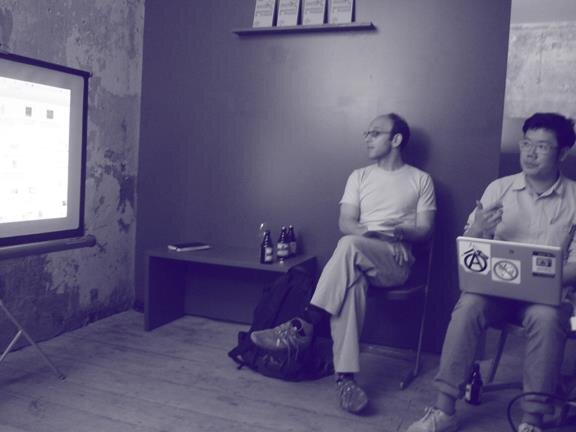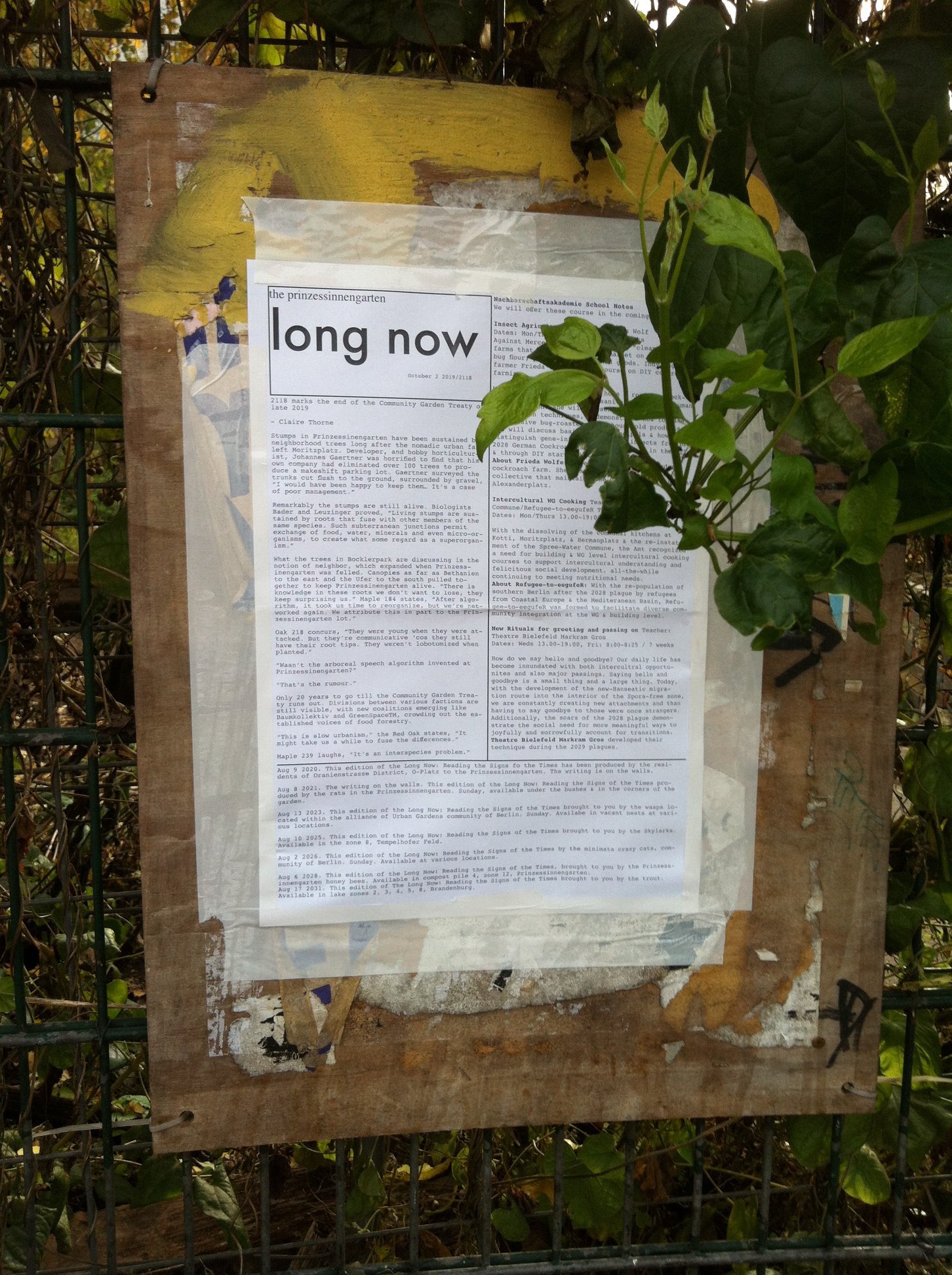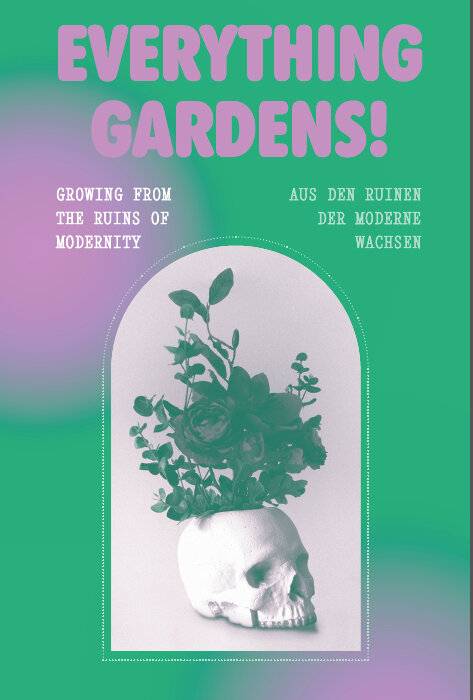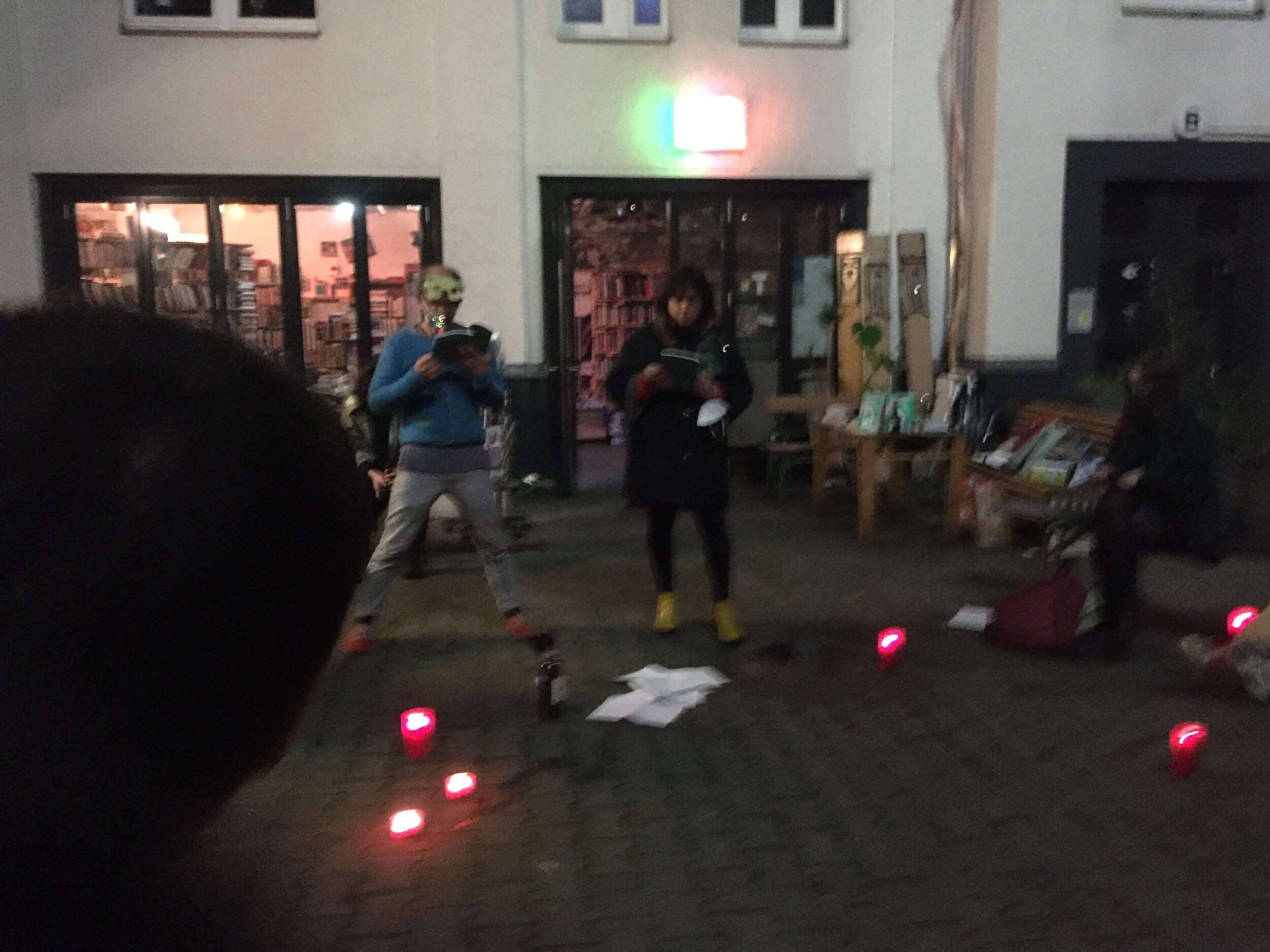Marc Herbst
Marc Herbst is an broadly interdisciplinary researcher, artist, editor/publisher and sometimes activist whose core experiences are built upon work on the Journal of Aesthetics & Protest he co-founded in Los Angeles in 2000. His often collaborative, often embedded practice is and grounded by DIY social practice, and engaged with social transformation oriented toward ecological and justice-based horizons. He calibrates cultural praxis with contemporary thought related to cultural and political movements and in dialog with fine art and critical and cultural theory. He's an MFA from CalArts and a PhD from Goldsmiths. Herbst has taught at the University of California San Diego, National Academy of Fine Arts Milan, and lectured and led workshops in Yale, UC Santa Cruz, the Danish Royal Academy and elsewhere. In addition to work with thee internationally situated Aesthetics & Protest collective, he is a member of the NachbarschaftsAkademie experimental garden in Berlin where, with Michelle Teran he is developing a project around conflict resolution and dreaming, “To Sleep Together in Common, Which is Political”. He is just back from the margins of the unfortunately failed Glasgow COP26 Climate summit where he helped launch the book that he co-edited and co-published with Pluto Press, We are Nature Defending Itself, Entangling Art Activism and Autonomous Zones, authored by Jay Jordan and Isa Fremeaux. He is currently working on a project looking at the form of what stands, relationally, between people in a dance space in Leipzig, where he lives.
Praxis Statement
As a long-term co-editor of the Journal of Aesthetics & Protest, his independent publishing and editing practice is his research method. It methodologically allows for deep and sustained critical dialog and exchange with activists, artists and theorists, and movements, and also supports site-based research, ritual and performance methodologies, as well as the production of objects (books, magazines, reports, newsletters, flyers) that have their own logic of independent circulation. In this way, Herbst is interested in knowledge and its utility in social and political practice– what knowledge is (whether articulated or present in practice), its utility (its relation to power and institutionality– ie. in meaning and politics), its circulation (in publications, through ritual, in context, in creative workshop form), and its innovation (in experimental learning environments). As an artist, writer, and publisher, he is interested in book's designs and production and the varying roles other practitioners play in the collaborative process of publication.
Research Interest
Herbst's current work engages broad and intimate questions of social and political transformation in light of climate change and the end of Halocenic stability. Overall, his research relate to how individual and worldly relations actually and symbolically play with variable material and symbolic orders- and how laws and expectations are challenged by manifest realities– realities transforming by climate change. Intimately he is co-researching how participants in activist and art collective's varying temporal, professional and experiential horizons erect or circumvent barriers to group process, and how night-time dreams and listening exercises might provide different perspectives to these horizons.
With neighborhood kids, he is collaboratively building a museum in a playground; a museum whose theme is playing with the rules of urban life, including those of who and what is representable, and what an institution can be.
And at the societal level, he is completing a long-term editing process on a book with the Laboratory of Insurrectionary Imagination on eco-feminist entanglement and ritual in relation to civilizational ways of establishing open yet ecologically-situated social orders.
Overall, his current reading includes the queer and decolonial theory besides anthropological and autonomous Marxist texts, the performances of everyday life and biopolitics.





